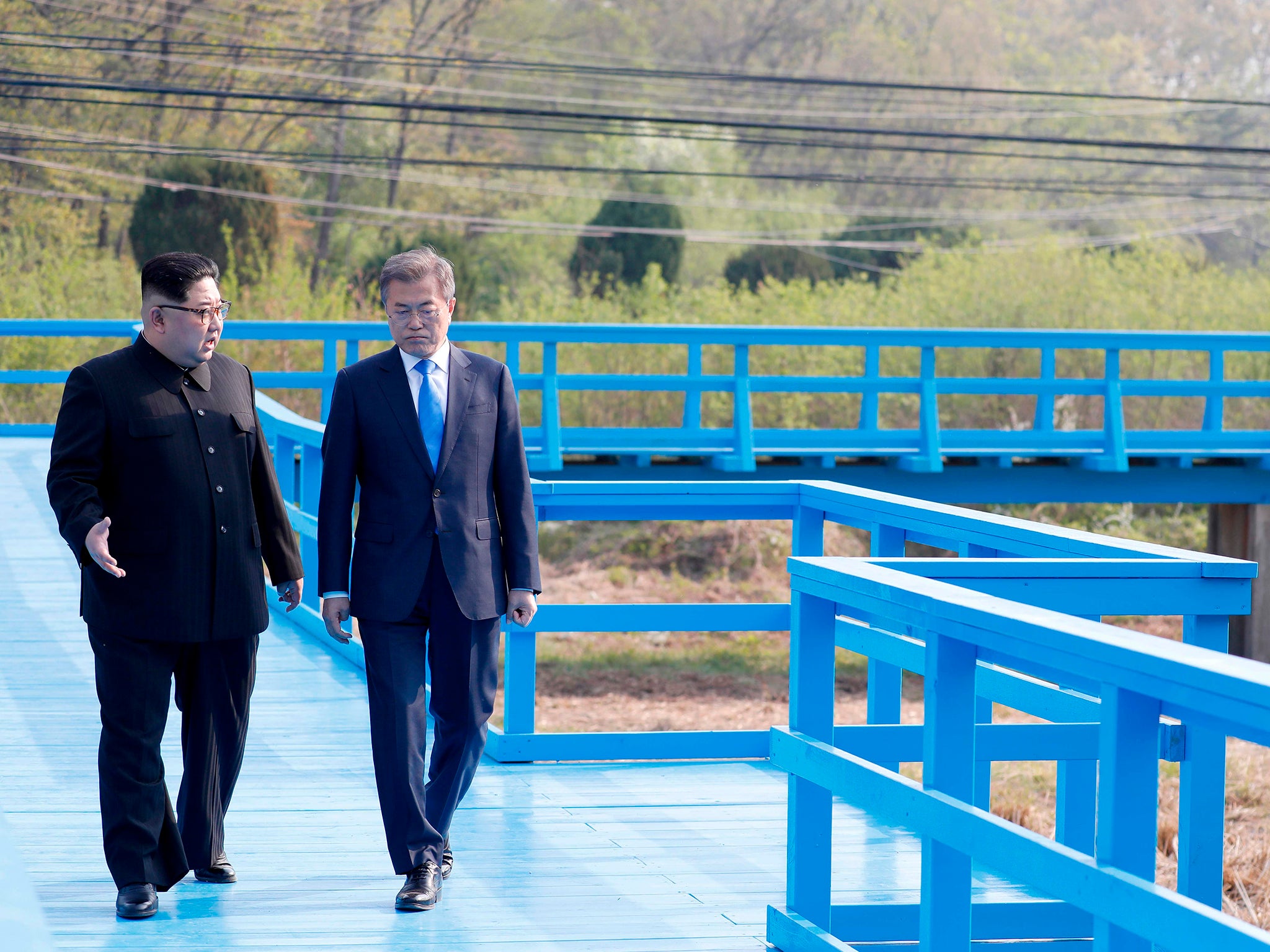China's top diplomat to visit North Korea less than a week after historic border summit with South
Wang Yi's trip to Pyongyang follows Kim Jong-un's visit to Beijing in March, when he met with Xi Jinping

Your support helps us to tell the story
From reproductive rights to climate change to Big Tech, The Independent is on the ground when the story is developing. Whether it's investigating the financials of Elon Musk's pro-Trump PAC or producing our latest documentary, 'The A Word', which shines a light on the American women fighting for reproductive rights, we know how important it is to parse out the facts from the messaging.
At such a critical moment in US history, we need reporters on the ground. Your donation allows us to keep sending journalists to speak to both sides of the story.
The Independent is trusted by Americans across the entire political spectrum. And unlike many other quality news outlets, we choose not to lock Americans out of our reporting and analysis with paywalls. We believe quality journalism should be available to everyone, paid for by those who can afford it.
Your support makes all the difference.China‘s top diplomat is to visit North Korea just days after the isolated country signed up to closer cooperation with its southern neighbour.
Foreign minister Wang Yi is due to visit Pyongyang on Wednesday and Thursday in the wake of last week’s Panmunjom Declaration signing, in which the leaders of the two Koreas pledged to achieve “a nuclear-free Korean Peninsula through complete denuclearisation”, though without detailing specific steps.
Kim Jong-un and Moon Jae-in agreed to end hostile acts against each other along their tense border, establish a liaison office and resume reunions of separated families in a landmark meeting on Friday.
Negotiations with the aim of formally ending the 1950-53 Korean War were also set in motion.
Following the signing US president Donald Trump was quick to praise his Chinese counterpart, Xi Jinping, for what he called his “great help” on the North Korean issue. He added: “Without him it would have been a much longer, tougher, process!”
China is North Korea’s sole major ally, but trade has declined by about 90 per cent after Beijing implemented economic sanctions due to Pyongyang’s nuclear and missile tests.
In March Mr Kim visited China by train, meeting Mr Xi and the pair – according to the state-run China Daily – agreed a plan to develop relations between the two countries, and to address the North’s nuclear programme.
The 36-year-old dictator is anticipated to meet Mr Trump at some point in May or early June, though no date has been announced for the encounter the Republican accepted on the spur of the moment earlier this year.
On Twitter Mr Trump suggested he was considering the Peace House, on the border between North and South Korea, as the intended location. It is where last week’s summit between Mr Moon and Mr Kim was held.
He tweeted: “Numerous countries are being considered for the MEETING, but would Peace House/Freedom House, on the Border of North & South Korea, be a more Representative, Important and Lasting site than a third party country? Just asking!”
If it takes place – and Mr Trump has in passing said that it yet may not – the summit would be the first US-North Korean leaders’ meeting in more than six decades of hostility.
Mr Wang’s planned visit comes as China’s neighbours already begin to implement the de-escalation steps they agreed last week.
South Korea will remove propaganda-broadcasting loudspeakers from the border with North Korea on Tuesday, officials said, with the North expected to do the same. Both sides had already stopped broadcasts ahead of Friday’s summit.
The two Koreas had been engaged in Cold War-era psychological warfare since the North’s fourth nuclear test in early 2016. Seoul began blaring anti-Pyongyang broadcasts and K-Pop songs via border loudspeakers, and Pyongyang quickly matched the South’s action with its own border broadcasts and launches of balloons carrying anti-South leaflets.
Seoul’s announcement came a day after it said Mr Kim had told Mr Moon during the summit that he would shut down his country’s only known nuclear testing site and allow outside experts and journalists to watch the process.
Additional reporting by agencies
Join our commenting forum
Join thought-provoking conversations, follow other Independent readers and see their replies
Comments